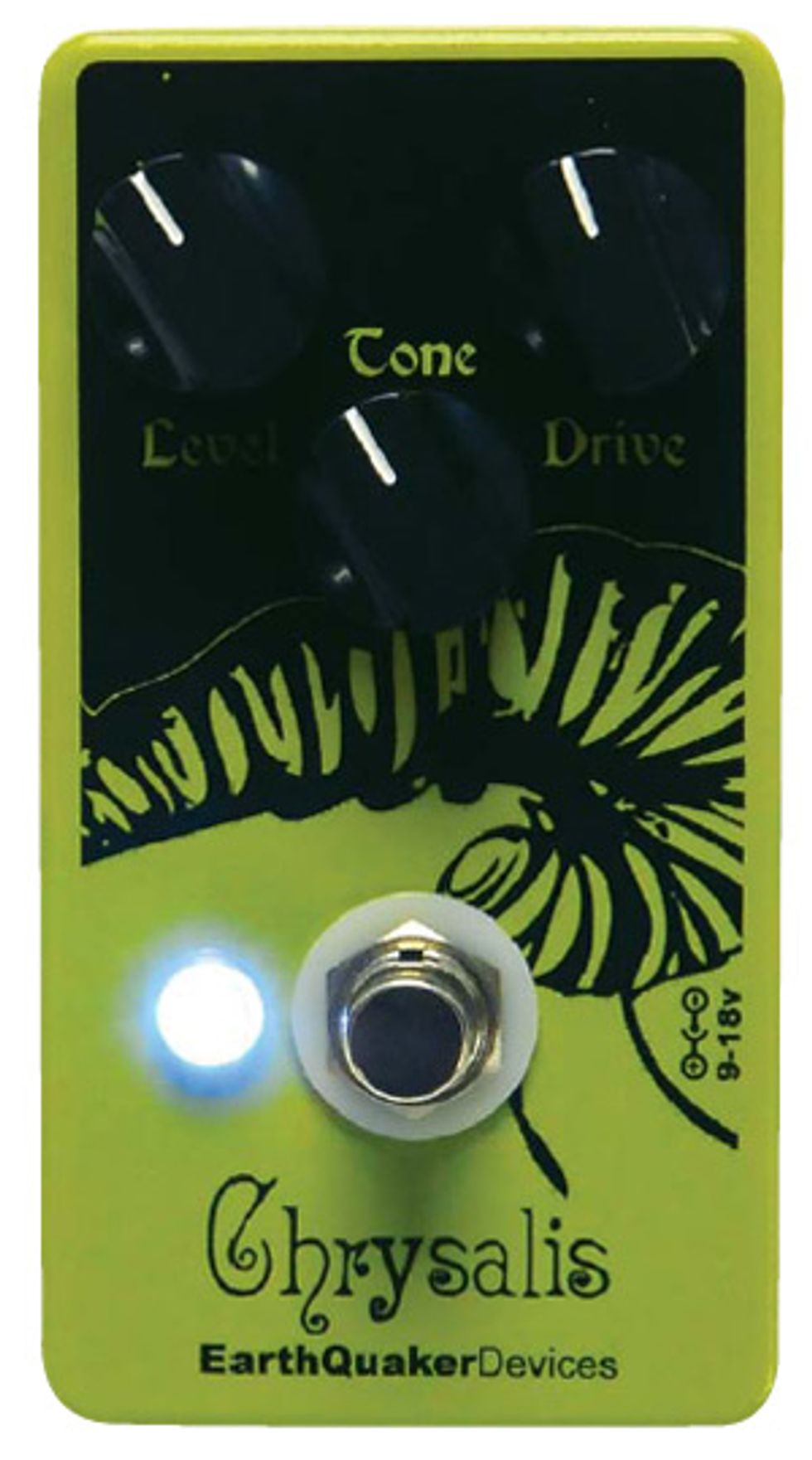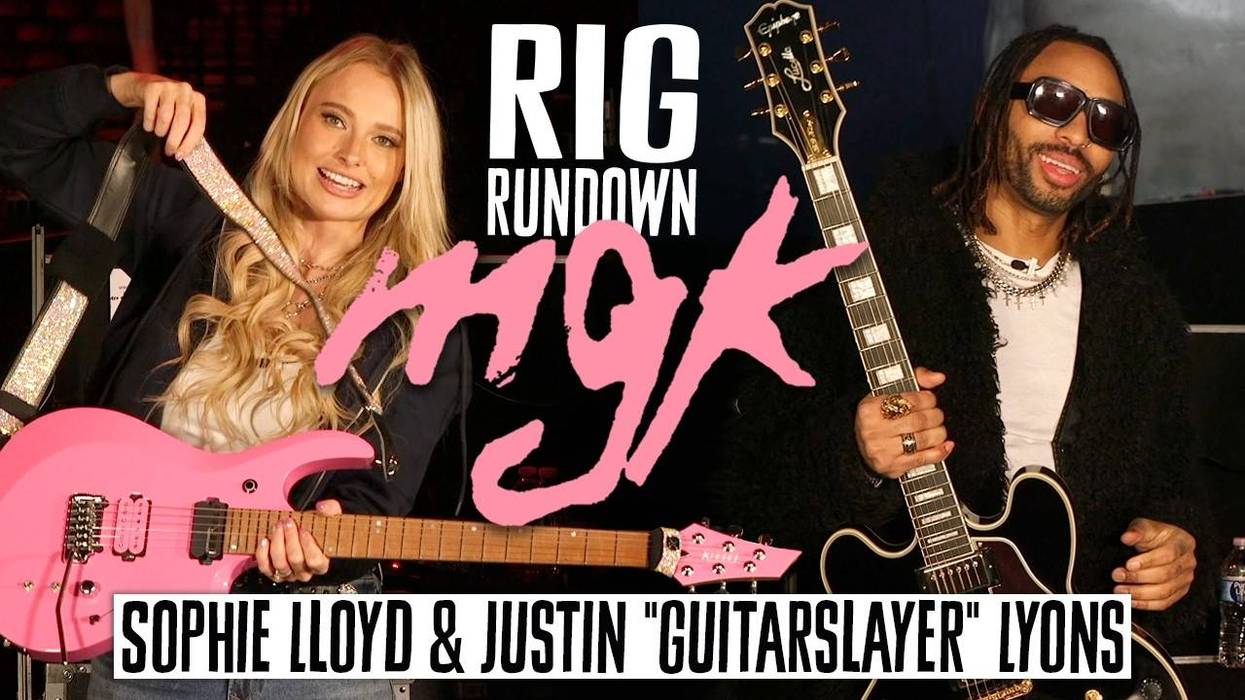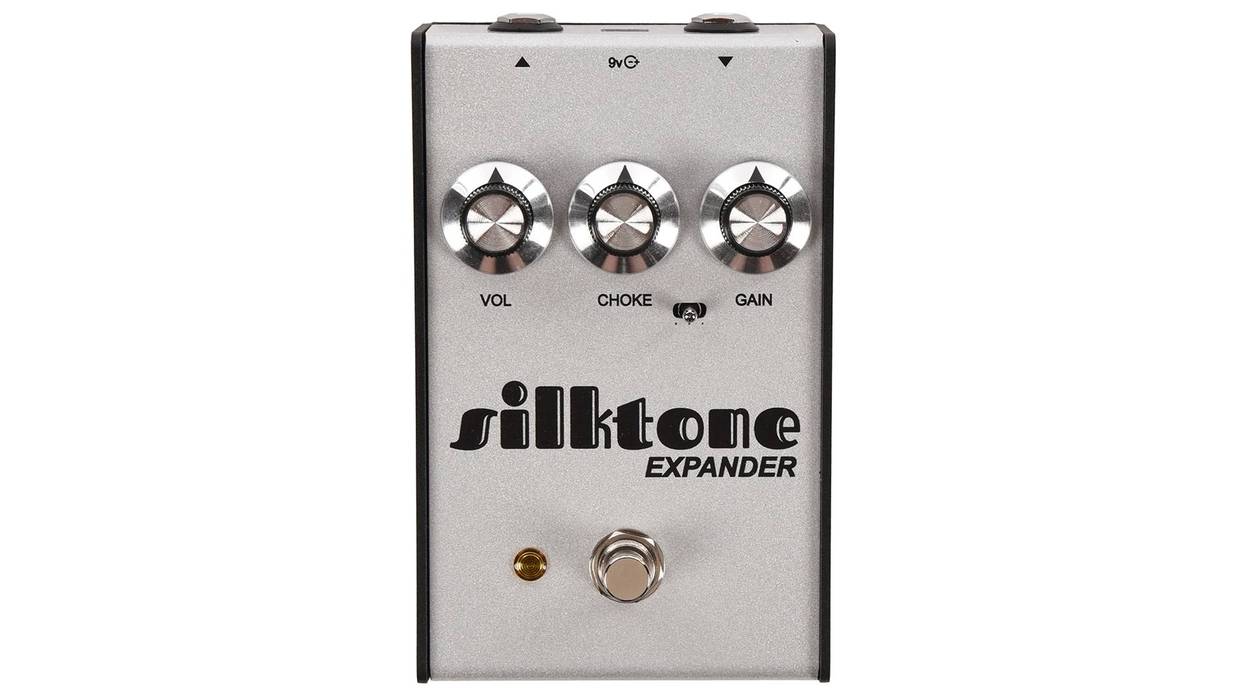 | |
| Download Example 1 Level 12, Tone 2, Drive 5. Epiphone Slash Les Paul, both humbuckers. | |
| Download Example 2 Level 11, Tone 3, Drive 5. Burns Brian May guitar, middle and bridge pups in phase. PRS 30 Amp. | |
| Download Example 3 Level 12, Tone 11, Drive 3. Fender Strat, neck pickup. | |
| Clips recorded with Fryette Memphis amp (unless otherwise specified), Shure SM57, Avid Pro Tools. | |
Lean, Green…
The Chrysalis’ name and logo script suggest an homage to the ’70s record label that was home to such rockers as Jethro Tull. Housed in a light-green metal case, it’s a handmade, true bypass pedal with a discrete transistor design. Running the Chrysalis from an 18V DC power supply yields increased headroom with a wider gain range and more focused tone, but it also works fine drawing juice from a 9V cell. The pedal is easy to navigate too, with just Level, Tone, and Drive, plus a handy on/off switch.
…And Pretty Mean
Evaluating a pedal designed to emulate the sounds of classic rock called for using an iconic ’70s rock guitar, so I hooked up my Burns Brian May model with Tri-Sonic pickups and a Paul Reed Smith 30 amp.
Straightaway, I was in sweet, midrange-voiced British rock territory. Humbucker-equipped guitars, including a Parker Fly and Charvel So-Cal with DiMarzio pickups, predictably coaxed some very fat sounds out of the Chrysalis. But even when driven with humbuckers, the Chrysalis retained a focus and bright clarity that would cut through any mix.
I also ran the pedal into an Egnater Tourmaster, a Fryette Memphis, and a Marshall 1959RR Randy Rhoads amp. I adjusted each amp for a clean and neutral setting, and let the Chrysalis take care of the overdrive. Even when I dialed in a super high-gain setting on the Chrysalis with its Drive knob all the way up and the amp cranked, the pedal added a lot of color without muddying the signal. With the Drive turned down halfway, the Chrysalis still provided heaps of crunch and responsiveness. During my tests, I discovered that the very versatile and useful Tone knob has a wide range that lets you make the overdrive as warm or biting as you want. But this pedal is essentially about midrange and presence, and even with the Tone knob all the way down, the signal remained lively and defined without sounding either flabby or muffled. This impressive midrange performance is essentially where the Chrysalis lives up to its “amp-on-a-record-in-a-box” billing. It has an uncanny ability to claim its own sonic space, as if it were being EQ’d and mixed by a very crafty engineer sitting behind the desk at Sunset Sound or Trident studios.
I did have an issue with noise and hum, especially at louder amp levels, and might be tempted to use a noise gate to eliminate some of that unwanted sound. But if you’re using this pedal in the context for which it was created— brawny, raucous, ’70s rock—you probably won’t be too concerned.
The Verdict
EarthQuaker sets an odd set of expectations for the Chrysalis by billing it as the sound of a recorded amp. But in the sense that it can provide the kind of cutting boost and distortion that will find room in any mix, the Chrysalis can help you maintain a certain presence that’s typical of those classic records. The pedal isn’t high-gain enough for metal, but that may be its only limitation. Whether you’re playing with a cranked 100-watt stack or a practice amp at bedroom levels, the Chrysalis will provide the kind of biting lead tones and harmonically rich chords that defined ’70s rock.
Buy if...
you’re a classic rock player who wants a guitar tone straight off a ’70s rock record.
Skip if...
you play metal or need a lot of high gain.
Rating...
Street $145 - Earthquake Devices - earthquakerdevices.com |
| Tone Games 2010: 30 Stompboxes Reviewed | Next in DIRT: Emma Electronic RF-2 ReezaFRATzitz Overdrive/Distortion |
















